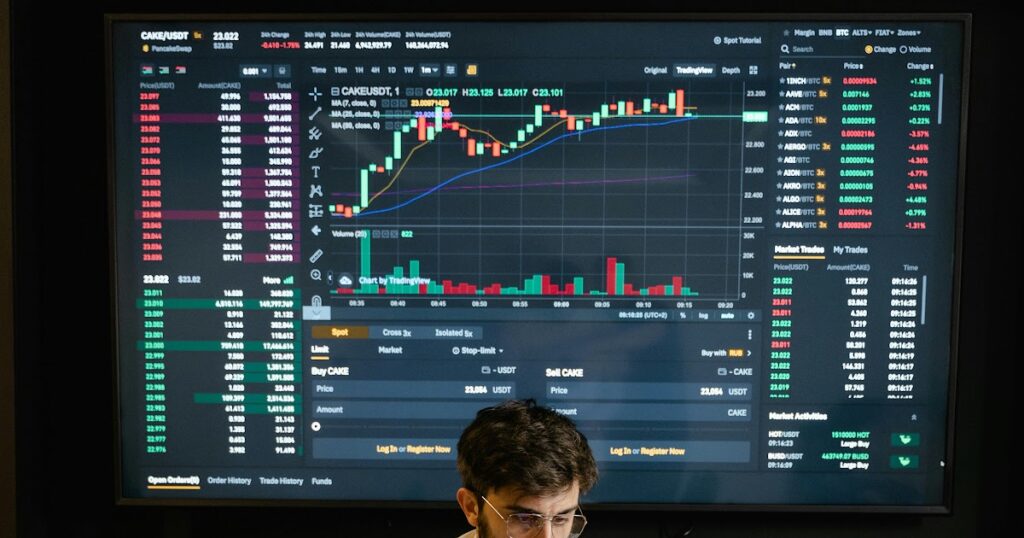Television has always held a mirror up to society’s obsessions, reflecting today’s trends, technology, and anxieties. One of the most interesting additions in recent years has been cryptocurrencies. These digital currencies, shrouded in mystery and misunderstanding, fascinate writers and audiences alike. Whether it’s criminals laundering Bitcoin or tech entrepreneurs showing off their blockchain startups, cryptocurrencies have become synonymous with innovation and risk.
Amid all the references to Bitcoin and Ethereum, smaller players like Solana also appear, a sign of the growing number of digital currencies. Unlike Bitcoin’s gritty, lawless mystique, Solana is often an elegant disruptor—a cryptocurrency for tech-savvy people seeking efficiency and speed. It’s this Wild West uncertainty and streamlined innovation that makes cryptocurrencies such a great television narrative.
Encryption in scripts
Cryptocurrencies’ entry into television didn’t happen overnight. For years, Bitcoin was considered a niche concept, mentioned only in the context of shady transactions by technocrats or in dark alleys, or its virtual equivalent. Shows like Silicon Valley brought cryptocurrencies into the mainstream, showcasing not only the technical details but also the eccentric personalities behind them. In a particularly brilliant episode, the Pied Piper team considers launching an ICO (initial coin offering), a mockery of the early speculation surrounding cryptocurrencies.
The crime drama was the first to capture the dark side of cryptocurrencies. Shows like Mr. Robot capitalized on Bitcoin’s early reputation as the currency of choice for cybercriminals, using it as a plot device to explore themes of control, anonymity, and rebellion against the traditional financial system. Legal dramas like Billions take a more nuanced approach, presenting cryptocurrencies as a legal but volatile investment — for ambitious financiers looking for an edge in a competitive market. This is a high-risk investment.
Crypto Tropes and Stereotypes
Television depictions of cryptocurrencies fall into two broad categories: utopia or dystopia. From a utopian perspective, blockchain is a solution to inefficiency and corruption and a way for individuals to regain control of their finances. Compared to Bitcoin’s energy consumption model, Solana fits the vision of a future, clean digital world with its fast transactions and eco-friendliness.
From a dystopian perspective, cryptocurrencies are enablers of greed, corruption, and chaos. TV shows like Black Mirror have already dabbled with this concept, pushing financial decentralization into darker territory. Here, cryptocurrencies are tools of exploitation and their anonymity is a breeding ground for scams and nefarious schemes. It’s a narrative choice that feeds into broader fears that technology is moving faster than regulation and ethics.
fact vs fiction
Television’s love affair with cryptocurrencies is not without its lies. Characterizing Bitcoin, Ethereum, or Solana as get-rich-quick schemes ignores the volatility of cryptocurrencies, which makes investing in cryptocurrencies as much a gamble as it is a strategy. Associating cryptocurrencies with crime (while not entirely wrong) ignores legitimate uses, from remittances to the DeFi ecosystem.
The lack of nuance in these descriptions sometimes distorts public opinion. While shows like “StartUp” explore the technical and ethical challenges of blockchain projects, others reduce the concept to a gimmick. The reality is more complex: Solana is not just a speculative asset, but a platform for innovative applications, from NFTs to dApps. Television often ignores these subtleties in its pursuit of drama in favor of instant riches or colossal flops.
encrypted narrative
For crypto TV writers, the biggest draw is the drama. At its core, cryptocurrencies are about change—and change brings conflict. Decentralization, traditional finance versus digital disruption, and the ethical gray areas of unregulated markets are rich areas for storytelling. Whether it’s startup founders pitting themselves against investors, or hackers exploiting blockchain vulnerabilities, cryptocurrencies lend themselves to tense plots that resonate with today’s audiences.
The exclusivity and complexity of cryptocurrencies add to the mystique. To the uninitiated, “blockchain” and “staking” sound like ancient mantras, modern alchemy that promises endless wealth to those who can understand it. Television capitalizes on this mystique, viewing cryptocurrencies as both an opportunity and a threat—a double-edged sword that can make or break its characters.
Cryptocurrency as role development
In addition to being a plot device, cryptocurrency can also be a vehicle for character development. In The Good Wife, a Bitcoin mining subplot allows the show to explore privacy, ethics, and innovation through its characters. In Ozark, the use of Bitcoin to launder money demonstrates the resourcefulness and moral gray areas of the characters and adds depth to their characters.
Solana and similar platforms have yet to gain the same level of mainstream recognition in the television world, but as the cryptocurrency market diversifies, it’s only a matter of time. Investing in Solana’s persona might be described as pragmatic and forward-thinking, rather than the risk-taking, roller-coaster personality typically associated with Bitcoin enthusiasts.
Cryptocurrency on TV
As cryptocurrencies evolve, so will cryptocurrencies on television. The next wave of crypto stories will go beyond “get rich quick” and delve into deeper meanings. Expect to see stories about decentralized governance, smart contracts, and blockchain ethics.
Cryptocurrencies are not leaving TV. Disruption, ambition, and rebellion against the establishment are timeless, and cryptocurrencies will serve as a storytelling toolbox for years to come. Whether as a symbol of hope or a harbinger of chaos, cryptocurrencies will become a fascinating way of looking at the world.

